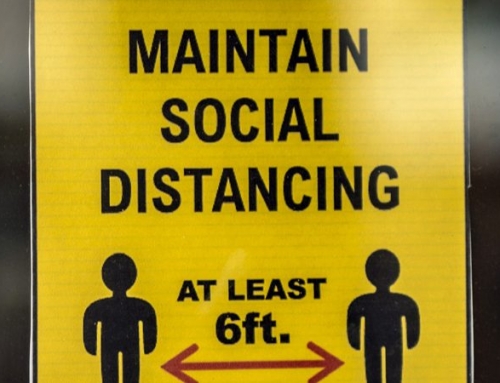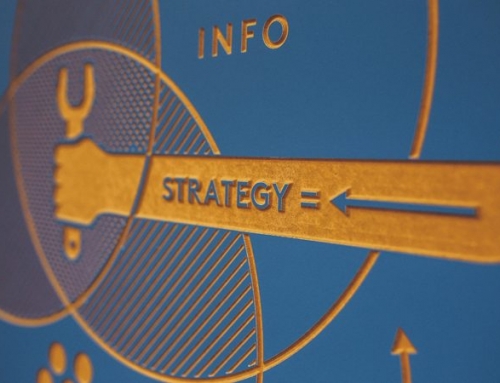Since the murder of George Floyd, the world has finally sat up and taken notice of the criminal injustice suffered by millions of people in the BAME community. The current climate is like nothing we have ever experienced and the events that took place over the past few weeks will have repercussions across every sector, including marketing. Marketing content arguably defines our culture as much as art, literature, film, or music and in many ways, it is one of the most scrutinised mediums in the world. The tone, subtext and approach to a campaign defines the way audiences and potential customers perceive an organisation and if this is at odds with accepted cultural value system or trends, it can be devastating. Though the goal of marketing will always be to promote products or services, this does not mean it should be an industry that is devoid of social responsibility. Here’s Probella’s guide to responsible marketing during times of social unrest.
Never Use Product Placement Inappropriately
It can be difficult to define exactly what is inappropriate and what is reasonable, but most people understand where the line is. Pepsi famously lost a lot of fans after they attempted to use a backdrop of civil unrest in order to try and promote their brand of cola. Though an internationally loved product, Pepsi cola is not really something most people would think of when they see a riot or a large-scale protest. The problem with this campaign was that many people perceived this to be a cynical approach to a profoundly serious situation. Supporting a cause like Black Lives Matter is one thing, but to deliberately try and profit by stylising the brutal reality of civil unrest is quite another. At the time, Pepsi admitted they misjudged this campaign and it has actually gained some fresh attention in the past few weeks due to what has been happening all around America. Though it can be great for companies to prove they support a cause or in touch with everyday people, blatant product placement against this kind of backdrop is both distasteful and opportunistic.
Create Hope, Not Hate
Divisive tactics and deliberately creating hostility between different factions of society is something that corrupt organisations have been doing for many years. During times of social unrest, we need unity and positivity, not hatred and hostility. For marketing professionals, capitalising on conflict can be tempting but this kind of toxic profiteering will only ever reflect badly on your company. People are changing the way they think about the world and though there is a great deal of justifiable anger on display at the moment, trying to harness this in order to make a profit is profoundly wrong. Campaigns that celebrate diversity, call for change and promote positivity will always be more successful than deliberately antagonistic or divisive material. Edgy humour and challenging concepts are one thing, profiting from the misery of others is quite another.
Transparency and Clarity
Whether it is the language you use, the imagery you choose or the way your customer service team deal with enquiries, transparency and clarity will always do well in times of social unrest. When mass civil unrest takes place, information often becomes garbled, confusing, and contradictory. The combination of the black lives matter protests and the outbreak of Covid 19 mean that many governments have been extremely vague when it comes to the information, they are offering their citizens. As an antithesis to this, marketing campaigns would do well to offer consumers a sense of simplicity, certainty and above all, clarity. When consumers feel as if they know exactly what they are buying, they are far more likely to respond positively than if they feel somehow tricked or swindled.
Use Emotional Triggers Carefully
One of the most grating traits of many marketing campaigns is employing an overly sentimental approach to themes and imagery. Something that was intended to be heartfelt and genuine can seem disingenuous and cynical when it feels as if the advertiser is trying to manipulate people’s emotions in order to get them to spend more money. Some things should always be off limits when it comes to marketing and capitalising on the heightened emotional state caused by something the BLM protests or Covid 19 is both irresponsible and immoral. That is not to say advertising campaigns and marketing content needs to be totally devoid of emotion but try to keep it as genuine as possible. Appealing to somebody’s sense of civic duty is commonplace in something like the charity sector but attempting to take this kind of approach when you work in a totally unrelated industry is not usually advisable.
Be careful with edgy humour
In this climate, the need for humour in everyday life is greater than ever. Laughter brings us together and promotes positivity, however, trying to make light of serious situations at the wrong time can spell disaster. In the case of both Covid 19 and the BME protests, both issues are so sensitive that attempting to make jokes relating to these incidents is playing with fire. Controversy can be a powerful marketing tool but in times of global instability, it can backfire as the need for a sense of stability amongst consumers is at an all-time high.
Adapt Your Content if You Need to
In the wake of the BME protests, many TV shows have been pulled from steaming services based on their potentially offensive content. Though most were never created to be deliberately provocative, the cultural climate shift means they are no longer acceptable. Scour your copy, videos and imagery and be honest with yourself; is there anything that you need to change? It is everybody’s responsibility to accept the mistakes of the past and to promote true equality. If you feel as if your brand voice is stuck in the past, now is the time to make some adjustments.






